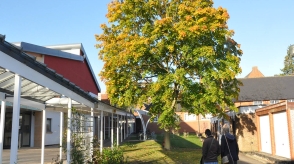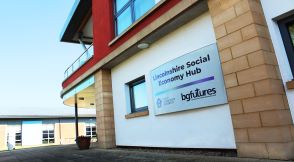The Social Economy
Growing in size and importance in the County, the Social Economy accounts for an estimated 10% of businesses and 6% of employment. The sector is well placed to respond to the economic and organisational change anticipated in Greater Lincolnshire: achieving carbon neutrality; implementing sustainable development measures; responding to changes in consumer behaviour away from goods and towards experiences and a growth in the sharing economy; re-localising supply chains and destination markets; the emphasis on social innovation, and the growth in cross-sector partnerships. The Social Economy sector is growing to fill the gap created by cuts in local authority budgets – and is growing most quickly in rural and in disadvantaged areas. The key points for Greater Lincolnshire are the value of the Social Economy to the county is larger than its Gross Value Added (GVA) to the County’s economy when its non-monetary benefits are taken into account. Social Return on Investment (SROI) is an increasingly accepted way of measuring these benefits, and there are a range of practitioners in the County with expertise in undertaking these kinds of evaluations. The Public Services (Social Value) Act came into force in 2013 and requires people who commission public services to think about how they can also secure wider social, economic and environmental benefits for their area or stakeholders, and as such get more value for money out of their procurement processes.

Greater Lincolnshire Social Economy academy
The Academy is a place which offers a range of training and development activities for charities, social enterprises and more

BG Futures, Lincolnshire Social Economy Hub
A supportive, collaborative community located on the Bishop Grosseteste University campus offering a range of tenancy options

Social Economy Strategy for Greater Lincolnshire 2021 – 2031
The landscape of the social economy across Greater Lincolnshire has been reviewed resulting in the production of a strategy.

